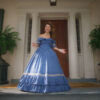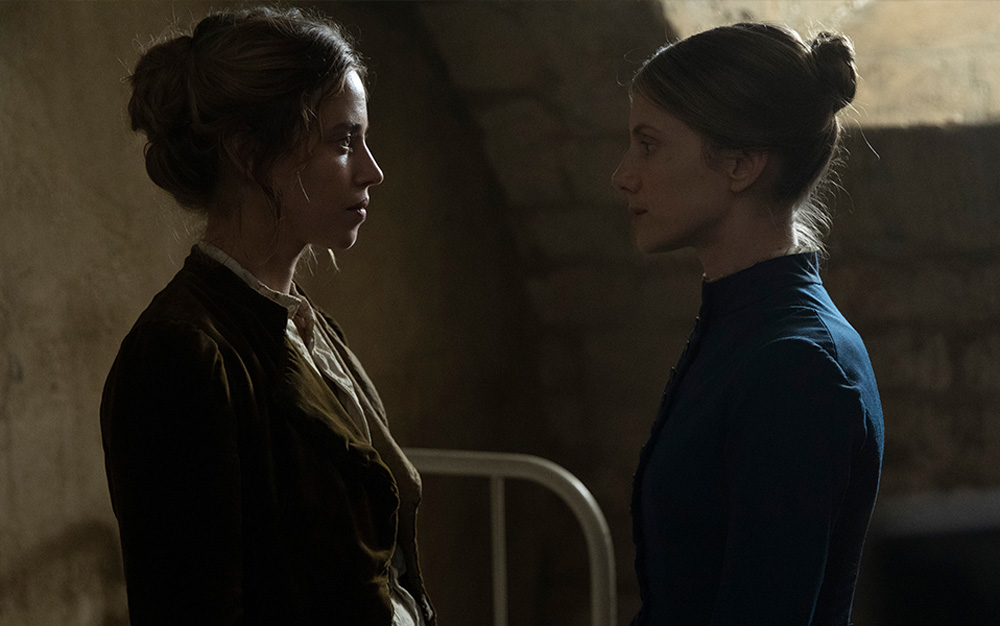It’s misunderstood time and again from the start of “The Mad Woman’s Ball” what Eugenie (Lou de Laage) wants, surprising her brother Theo as he makes his way inside a carriage bound for a debate, the entertainment of the day in 1880s France. She can’t come with him, he insists, but that’s hardly her intention when all she’d like is a little peace and quiet by herself, asking to be dropped off at a cafe in Montmartre where she can read and smoke away from the rest of the family. Even upon reaching this place of solitude, she is interrupted by a stranger who assumes she’s looking at him before correcting him, “I was looking at your book.”
The confusion becomes dangerous in Melanie Laurent’s rich and wily adaptation of Victoria Mas’ novel about a young woman thrown into the bowels of a mental institution when she’s seen as an inconvenience to her father Francois, who can’t count on her to keep the family’s good name when she questions the purpose of debutante balls and skeptical of high society life more generally. With Eugenie afflicted by what appear to be panic attacks, Francois can admit he doesn’t know how to take care of her without fearing ridicule and rid himself of a problem at the same time, although the real condition undiagnosed by male doctors more interested in confirming their own place in society is a gift for commuting with the dead – or spirits, as she clarifies, shaken by what she hears.
A horror film by the measure of history rather than of genre, “The Mad Woman’s Ball” is bound to leave one trembling, first in anger and then in admiration as Laurent impressively quantifies a period in which the scientific unknown was seen as being rife with opportunity for the predominantly male medical establishment to explore personal curiosities and kinks and affirm a patriarchy that’s been difficult to dismantle since, with the women committed to the institution subject to medical presentations that look more like stag parties and pictures are created to be gawked at. Laurent, who’s long been attuned to matching the aesthetic of a scene to the emotion inside of it, clearly delights in her first foray into period filmmaking, drawing on the diegetic sound of bells ringing as pangs of terror and having the film often live at the edge of shadows when only natural light is available.
Reuniting with de Laage, the star of her extraordinary coming-of-age film “Breathe,” the director once again is the beneficiary of a fearless and cunning turn while giving one of her own as Genevieve, the head nurse at the institution charged with keeping an eye on Eugenie. As in their last collaboration together, which infused a teenage friendship with a real sense of danger, “The Mad Woman’s Ball” always feels more lively and daring than its buttoned-up setting would seem capable of, with real relationships developing inside the institution and the plights of two other patients Camille and Louise, each played unforgettably, respectively, by Coralie Russier and Lomane de Dietrich, given the same level of care and consideration as Eugenie. “The Mad Woman’s Ball” may begin with its lead mourning the death of Victor Hugo, but by the end, one can take at least some measure of comfort in being the hands of an equally assured storyteller.
“The Mad Woman’s Ball” will screen at the Toronto Film Festival virtually on September 13th beginning at 10 am EST and September 18th at 4 pm EST and will be available on Amazon Prime on September 17th.




